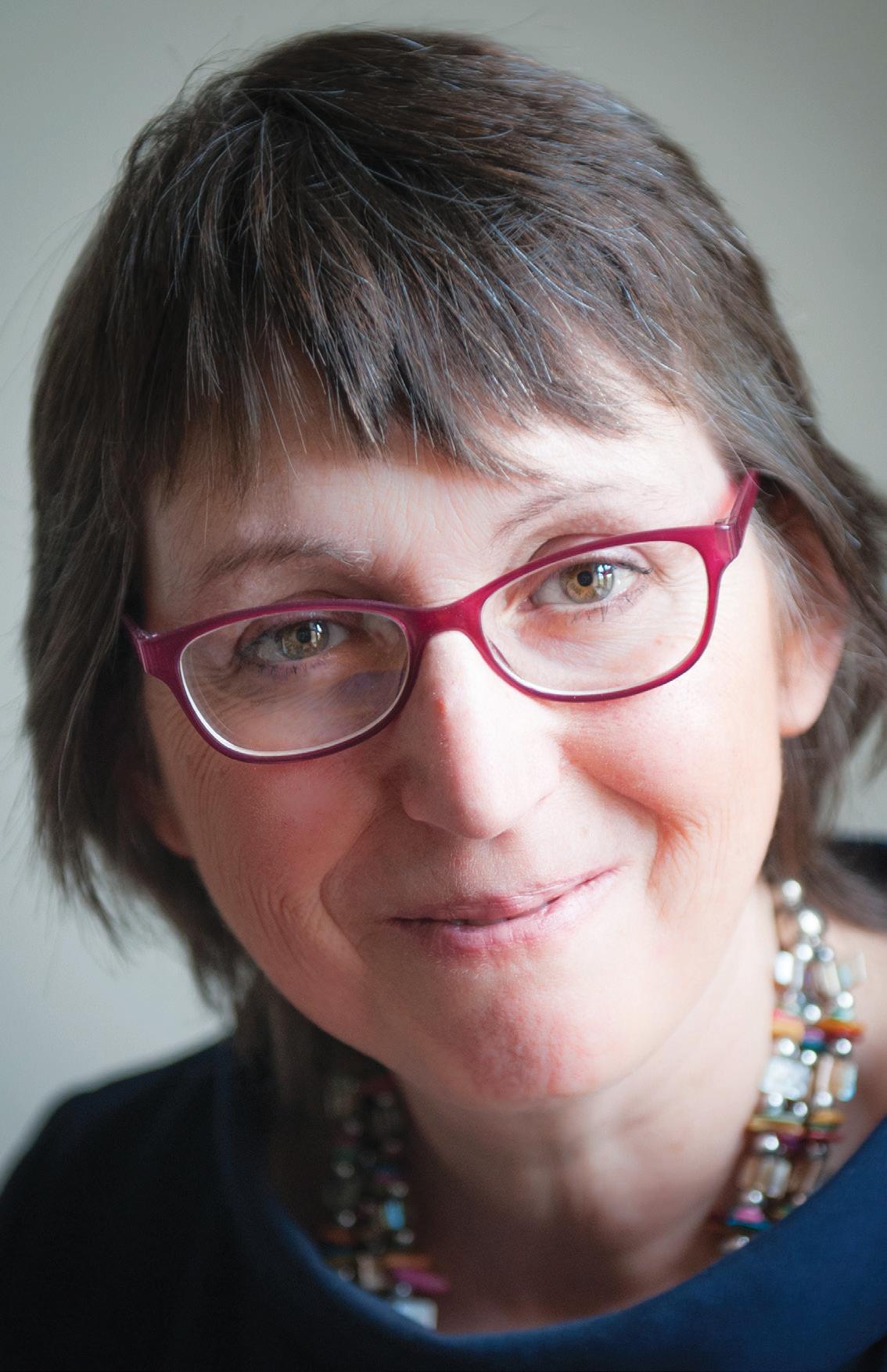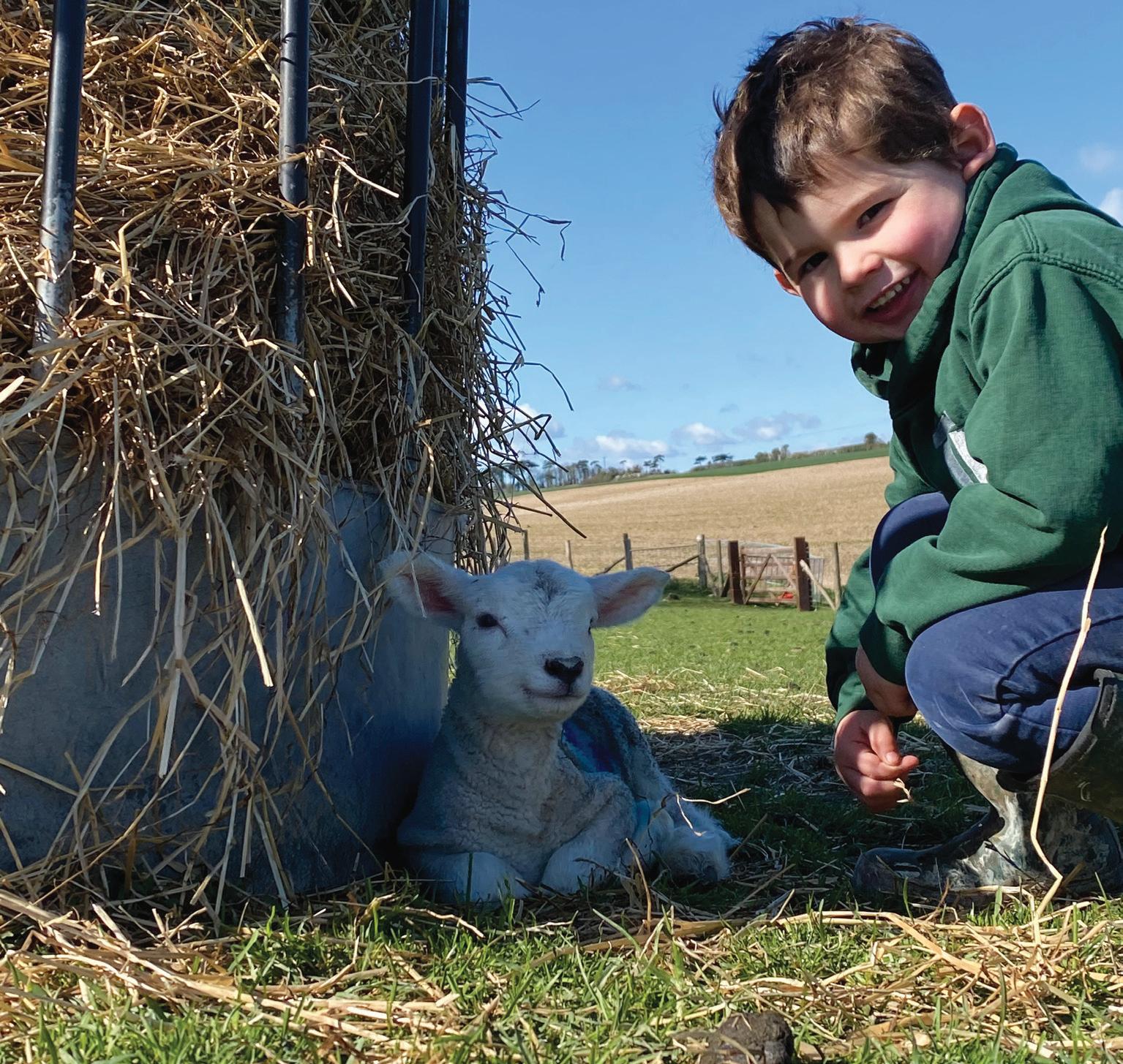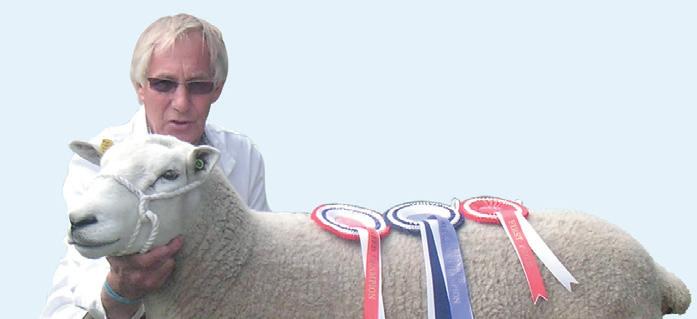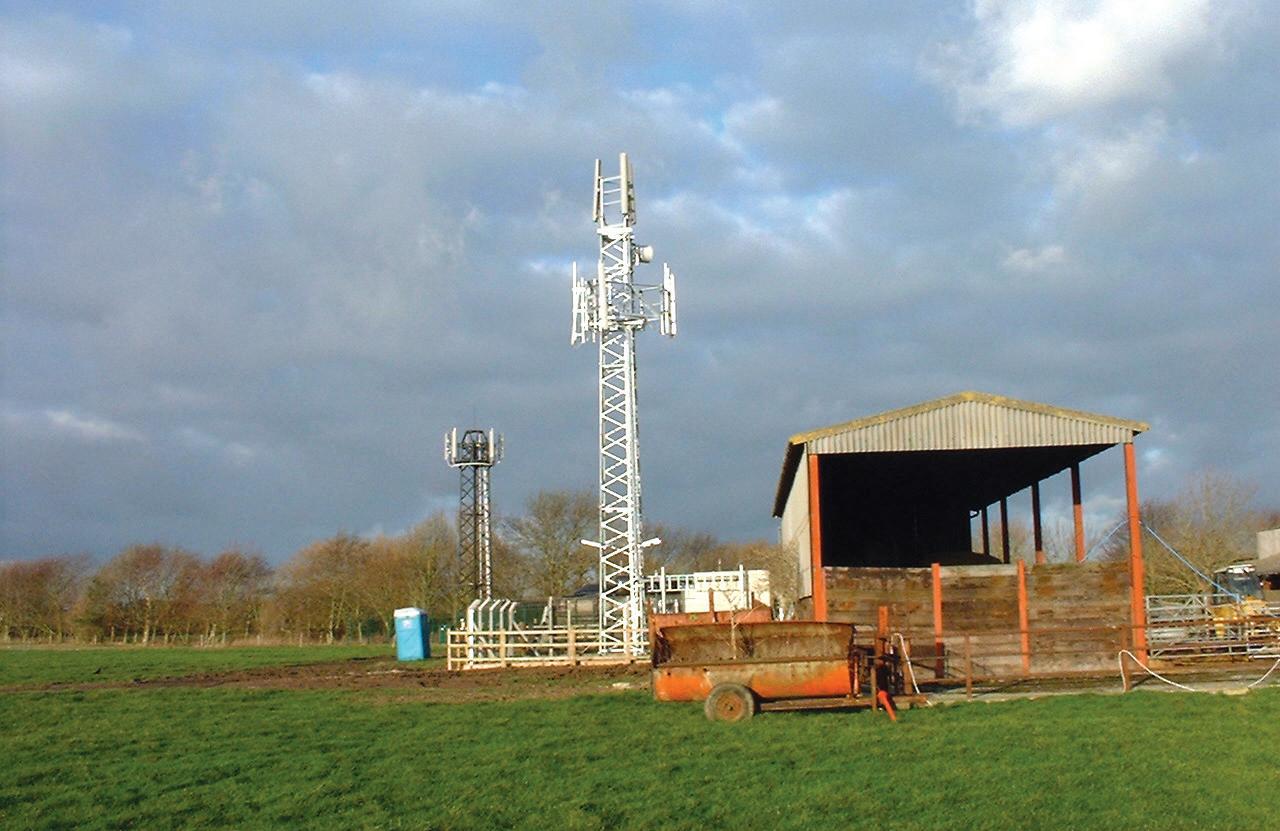
15 minute read
£30 million redevelopment


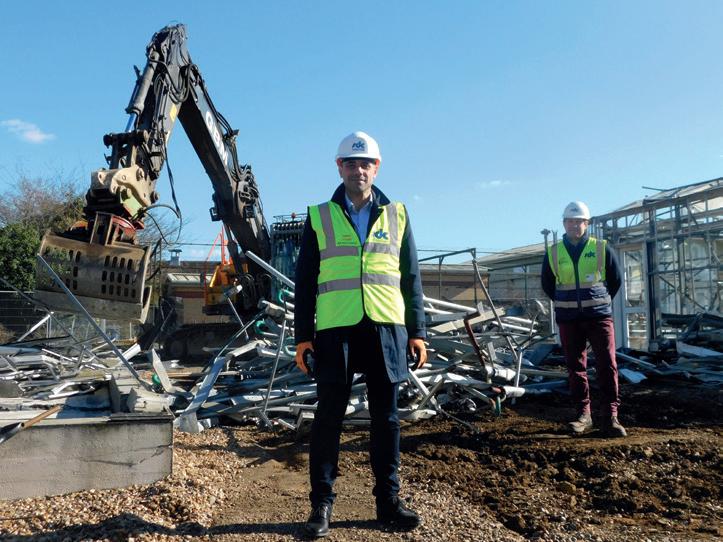

Taking advantage of the new opportunities and meeting the new challenges in agriculture means growing the right crops, and that means buying the right seeds.
Nick Green, who set up Newtone Agriscapes at the end of February, combines his practical farming experience and technical expertise to off er informed and useable advice to growers.
Based in Wye, Kent, the new business, which is already on the books of buying group Southern Farmers, supplies grass seed for
SEEDING NEW GROWTH
agricultural and domestic use, wild fl ower mixes and seeds suitable for cover crops, game cover and environmental stewardship use.
“Agriculture is changing and I felt that with my knowledge and experience I could provide a useful service for farmers looking to take advantage of the new opportunities out there,” Nick said.
“I can help with the technical side of the new requirements in order to help farmers achieve subsidies via the likes of the new Environmental Land Management scheme, as well as making sure they integrate into existing farming systems. I plan to off er advice and technical support as well as supplying carefully selected seeds.”
£30 MILLION REDEVELOPMENT
A £30m redevelopment aimed at improving productivity, boosting crop profi tability and generating new skilled jobs is underway at NIAB EMR at East Malling in Kent.
Construction has started on the regionally signifi cant food-related Growing Kent & Medway initiative that includes new glasshouses, offi ces and labs at the site. The investment aims to transform plant-based scientifi c research facilities across the South East and strengthen the competitiveness of Britain’s horticulture, food and drink industries. £18 million from the Government’s Strength in Places Fund has been boosted by additional funding from the East Malling Trust and commercial partners to back an initiative that will build upon more than a century of strategic and applied horticultural research at the site.
Due to be completed by the end of 2021, the redevelopment will deliver modern research facilities and new science projects that NIAB EMR believes will maintain its “global leadership in horticulture innovation”. Managing Director Professor Mario Caccamo said the facility would be “better placed than at any time in the last decade to help producers rise to the challenge of climate change, reducing import dependency and improving the country’s food security”. He added: “The state-of-the-art plant growth facilities will enable our scientists to accurately manage the cropping environment and test the response of fruit crops and novel technologies to help improve productivity and crop profi tability and generate new skilled jobs across the sector.” The development will be part of the site’s Advanced Horticultural Technology Zone, which is already underway thanks to earlier support from the South East Local Enterprise Partnership’s Local Growth Fund, and features new science buildings, state-of-the-art glasshouses, a green energy resource and other related infrastructure. East Malling Trust Board Chairman Dr Oliver Doubleday said: “The delivery of this ambitious project follows our vision to see East Malling continue to develop as a global innovation centre. “The modernisation of the site was long overdue and will support the team at NIAB EMR to remain at > Professor Mario Caccamo oversees demolition at NIAB EMR

the cutting edge of technology. We are very excited to be able to support this development and look forward to continuing our partnership with NIAB EMR to deliver world-class science at the service of the UK’s growers.”
The new glasshouses will be used by the scientists to improve industry profi tability by developing new varieties and improving plant health and resistance to disease by undertaking controlled trials in crop production, breeding pathology, entomology and plant health.
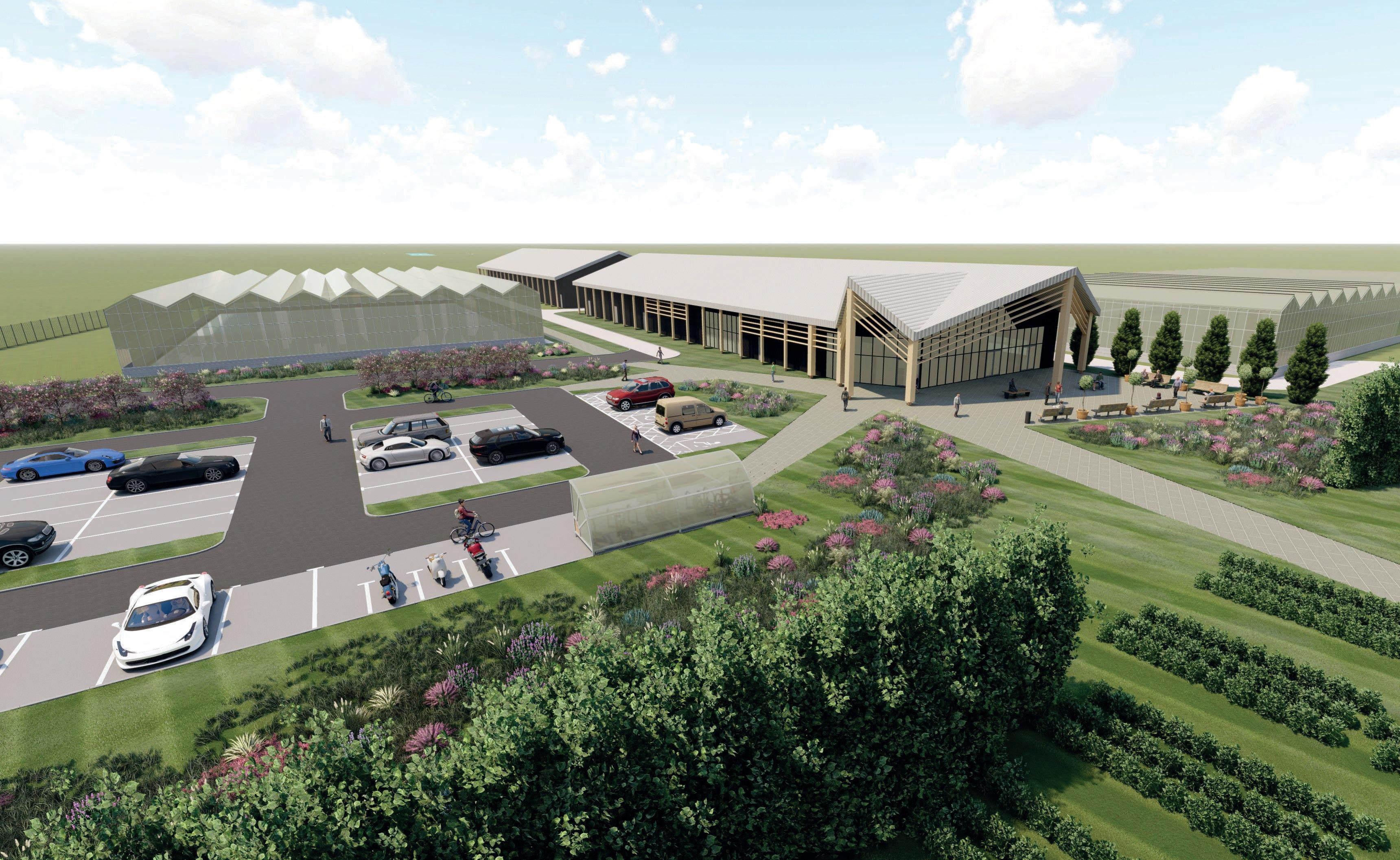
ASTONISHED BY RESPONSE
Dear Sir, I have to say I was astonished by Mr Murfet’s response to my letter (“Risk to bees in Northern Ireland”, South East Farmer, April).
The major beekeeping associations including the Ulster Beekeeping Association, the Irish Beekeeping Association, the Federation of Irish Beekeepers, the Institute of Northern Irish Beekeepers and the Native Irish Honey Bee Society – associations covering the whole island of Ireland, North and South – are all against these proposed imports. So also are the major beekeeping associations of Great Britain.
This is not without good reason, and in the current times we are all too aware of how easily disease can spread!
If Mr Murfet believes Irish bees are Buckfast bees, he is very ill informed. Our native bee is the Dark European Honey Bee, Apis mellifera mellifera, also called the Black Bee. This bee was once widespread across northern Europe but has been decimated in most of Europe, including the island of Great Britain, through sustained importation of non-native species.
The island of Ireland, though, still retains strong stocks of Apis mellifera mellifera and great efforts are made to conserve and study these bees to ensure their survival. Ireland has a unique genetic resource which needs to be protected for the sake of its future in Ireland but also in European Amm breeding programmes.
An interesting paper online at tandfonline.com is entitled A significant pure population of the dark European honey bee remains in Ireland. Were Mr Murfet to read it, he might be enlightened as to why his new commercial venture is so undesirable.
A recent survey by the National University of Galway (NUIG) confirmed that about 90% of beekeepers in Ireland work with Amm (out of 350 respondents) and there is a significant interest in using the local bee. A separate survey by the Irish Beekeepers’ Association showed that 82% use Amm, only 7% used Buckfast, 2% other and 5% do not know.
Mr Murfet is engaged in an enterprise which will do untold damage to beekeeping in Ireland and in Great Britain, and the tragedy is he doesn’t even understand, or want to understand, it.
Aideen Day, Kilkee, Clare.
Patrick Murfet of Bee Equipment responds: My company has been supplying Buckfast bees into Ireland for as long as I have been in business, as has another major importer. That aside, the majority of the bees that my company will import directly into Ireland will travel to our apiaries to the north.
We do not want them to be in Ireland any longer than necessary and it is our intention to move the hives on to new owners as soon as possible. To explain, without drones no genetic material can be passed on. The hives all have queen excluders on the fronts, thus preventing any drones from leaving the hive. It takes approximately 40 days for a drone to sexually mature. Hence we have two safeguards; no drones on landing and when re hiving, and an excluder to stop any strays leaving.
DELIGHTED TO PROVOKE REACTION
Dear Sir, You have had a busy postbag! I am delighted to have provoked a reaction from David Steed. Steed by name and steed by nature, but sadly he didn’t read my letter carefully enough before indignantly mounting his charger! My message was simply that too many of us old farmers are reactionary and inflexible in our opinions, while so much around us is changing, sometimes for the worse but often for the better. Too many of us are also capable of egregious hypocrisy. I am sorry if David felt insulted, but I argue my case from within farming and haven’t voluntarily listened to the Archers since the late 1950s. © Telegraph Media Group Limited 2021

Articles offered for publication, aimed to inform, should be accurate and coherent, unlike Boris Johnson’s contributions to the Telegraph. The nub of my last letter was to take issue with Nick Adames’ opinion that all was well with Brexit; that ecologically minded folk are just useless ‘tree-huggers’; that planting Sitka spruce is a green solution.
None of these are true, nor amusing. He has been at it again this month, arguing that cattle culled for a positive TB test and a ‘negative’ post mortem examination have nothing wrong with them. This is simply incorrect and it is mendacious to spread such misinformation. He ignores the science like the antivaxxers. He was also wrong about the Ozone layer and alien species!
I may, however, still share his opinions that TB causes a lot of stress and on the apparent influence on government policy exerted by the PM’s current unelected ‘bedfellow’. She is, however, a good naturalist!
I was delighted to learn of David Steed’s tree and hedge planting. I have had much pleasure from the same and am pleased to say some of my oaks have also reached 10m. This winter I have personally planted some disease resistant elm whips (40cm), though will be lucky to see them reach more than four metres.
I will, however, take issue with some of David’s opinions. He objects to UK sheep being exported live to France to then be labelled French lamb. We have been doing the same here for years. More Scotch beef comes into London than is ever reared in Scotland, and Irish beef killed in Northern Ireland comes across the Irish sea as UK beef!
He is also wrong to decry magpies predating nests. Ecosystems are complex and self-regulating, and predators are an essential part of that system, however distasteful their actions may seem to us. The hypocrisy is that we blithely raise and release 40 to 50 million pheasants annually in order to fill them full of lead for fun. Magpies predate to survive.
Alien, in ecology, has a very specific meaning. It has not co-evolved, which is crucial. Happily the tools to ‘remake’ Neanderthals are almost with us. It will be technically possible within about 50 years, but may not be necessary as many Europeans (including Brits) already have quite enough Neanderthal genes.
Mike Kettlewell, Over Norton, Oxfordshire
FARMING AS NORMAL
David Exwood, arable, beef and sheep farmer and farm shop proprietor, Horsham, presents the first in a new series of contributions from front line farmers.
Who would have thought that a year into the global pandemic there would still be millions of workers in the UK on furlough and that this situation is likely to be continue for months to come? While it has been a vital lifeline to many, it’s clear that it would be unthinkable as a longterm economic model. The financial and social cost to the country will be felt for years to come.
Farming, to its credit, has largely carried on as normal. But there are parallels with the debate on future land use in the South East. Has doing nothing become fashionable, and is it really sustainable to pay people to do nothing?
At a time of a big economic reset in farming, as we move away from direct payments, we are also seeing a rise in competition for land use from all sorts of directions. Whether it’s nitrate reduction schemes, rewilding, carbon offsetting or tree planting, all are alternative uses for land that generally involve doing and producing very little. They are already taking large tracts of land, and perhaps this is only the beginning.
At a time of such uncertainty in agriculture, the lure of money for doing very little could become overwhelming. Why mess around with crops, animals and the weather when you can have guaranteed payments for very little risk? Many agents are advising the land owner to ditch the tenant or contractor and take the certain cash. And who can blame them? Don’t be fooled by the near record prices in grain, beef and lamb at the moment. Without direct payments, will farming be able to outbid everyone else for land in the South East?
You might say leave it to the free market, but even a Conservative government agrees there has to be some measure of home food production, and with the global debate on carbon heating up, political interference in agriculture is only going to increase.
So how do you make the case for farming against these powerful forces? We at NFU South East can see that we have fantastic farmers and huge potential in our landscape. We have globally competitive businesses that have the climate, soils, markets and infrastructure to be proud of. They are well connected, capitalised and creative and are amongst the most sustainable food producers in the world.
The team has written a report called Fertile Ground which shows what we have, what we can do and what we need to succeed. We are taking it to every non-farming organisation, politician and body we can think of. We want to shout about how good we are, how much we have to offer and what we need to thrive in the future.
The easy thing to do with land in the future is to shut the gate, call it rewilding and take the taxpayer cash. But to abandon any concept of the value of using land for food production in an uncertain world is reckless to say the least.
This isn’t about farming every acre, using every input and tool regardless of the environmental cost. This is about using land to achieve a balance of everything. Carbon capture, clean water, making space for nature, renewable energy and yes, productive, sustainable, globally competitive food production, right here where so many people live and work. The best businesses are already doing it, but there is so much more we can do. Now isn’t the time to furlough farming. Now is the time to do the hard thing and learn how to do it all at once. We think there is much fertile ground for farming in the South East. I hope you agree. Otherwise, where is your food going to come from?

Long-awaited face-to-face meetings between landowners, farmers and suppliers are likely to be at the top of the agenda at the inaugural AgriSouth 2021 event at the Faversham Showground.
After a frustrating year of cancelled shows, the free event, scheduled for 20 May, will focus on research, technical development and innovation by showcasing an extensive arable crop trial area.
The event is registered with the National Register of Sprayer Operators (NRoSO), with two continuing professional development (CPD) points on off er for those who attend.
Organisers point out that at “this crucial time for all sectors of UK Agriculture, politically and environmentally”, farmers are “looking towards a sustainable future for agriculture that will require suffi cient food to be produced for a growing world population while natural resources are conserved – something that can only be done by using the latest innovative and smart technologies adapted to meet the local conditions”.
With that in mind, AgriSouth will showcase products, services and technologies across the industry aimed at helping farmers and landowners future-proof their businesses and remain effi cient and profi table.
FACE-TO-FACE MEETINGS TOP OF THE AGENDA
Technical event partner NIAB TAG will unveil a range of fi eld-based arable demonstrations and trials that will allow visitors to interact with leading industry experts, including a variety of demonstration trials in winter wheat and winter oilseed rape. Additional agronomy and soil management demonstrations will be presented by Yara Agronomy, Agrovista and Charton Manor Contracts.
NIAB TAG’s involvement as a technical partner with AgriSouth has been led by Keith Truett, NIAB’s regional agronomist for the South East, who joined the organisation four years ago and has 20 years’ experience of farm agronomy. He is chairman of NIAB TAG’s Kent Technical Committee, which takes an independent, science-based approach to technical information.
Alongside an extensive seminar programme sponsored by Kreston Reeves, AgriSouth will also feature an interactive workshop led by Dr David Jones, the Natural History Museum’s earthworm expert, one of the creators of the soil and earthworm survey and the founder of the Earthworm Society of Britain.
Dr Jonathan Scurlock, NFU Chief Adviser, will be presenting a seminar entitled Renewable Energy and Climate Change. A senior NFU adviser since 2007, Jonathan leads a small team providing analysis and advice on energy and climate change to the NFU’s management, offi ce holders and members.
His background in university and government research covers energy and climate policy, plant physiology, biomass fuels, bio-based products and other renewables.
The organisers are urging farmers across the South East to “come along, enjoy some hospitality and consider how this event could aff ect your planning at one of the few gatherings of agricultural industry machinery, supplies and service specialists in the South East for 2021”. The showground is at Staplestreet Road, Faversham, Kent ME13 9HY.
BUCKS COUNTY SHOW CANCELLED
The ongoing coronavirus pandemic has forced the organisers of the 2021 Bucks County Show to cancel the event scheduled for 26 August.
Charlotte Patrick, from the organising team, said that “while the ongoing vaccination programme is progressing well and should be commended, it has nevertheless become increasingly evident that it would not be prudent to hold the Bucks County Show this year. “This has been a very diffi cult decision to make, but, as our pre-planning for the 2021 event would now be starting to reach key deadlines for confi rming major contractors, the committee felt it had no other option than to make this decision now and focus our eff orts on the 2022 show.”
Kent-based scientifi c research charity East Malling Trust has appointed Dr Celia Caulcott and Tim Chambers to its board as trustees.
Formerly Vice-Provost (Enterprise) at University College London, Dr Celia Caulcott was responsible for developing and supporting the
HORTICULTURAL CHARITY APPOINTS NEW TRUSTEES
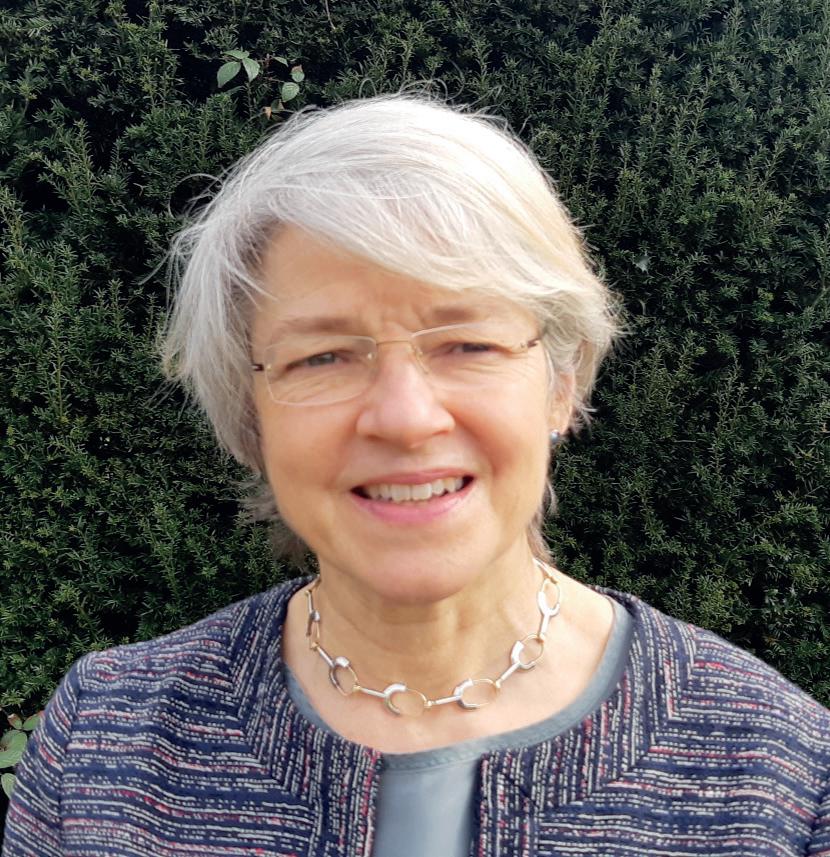
university’s innovation and enterprise strategy. Before that she worked at the Biotechnology and Biological Sciences Research Council. She currently chairs the Board of Trustees of the Quadram Institute, which undertakes important work in the fi eld of food and health.
Tim Chambers is managing director and third generation owner of Chambers Group, which specialises in berry, currant and stone fruit production and packing for leading UK supermarkets. The Chambers family can trace their farming heritage in Kent back to 1624, when James I was on the throne.
Dr Oliver Doubleday, Chairman of East Malling Trust, said: “For more than a century the trust has been an advocate for scientifi c advancement to support, strengthen and sustain the competitiveness of the horticulture industry. We are very fortunate in securing the services of these two highly qualifi ed industry experts.”
The new trustees will help the trust continue to support the work of NIAB EMR on the 500-acre estate and create a new research campus. > Dr Celia Caulcott > Tim Chambers




